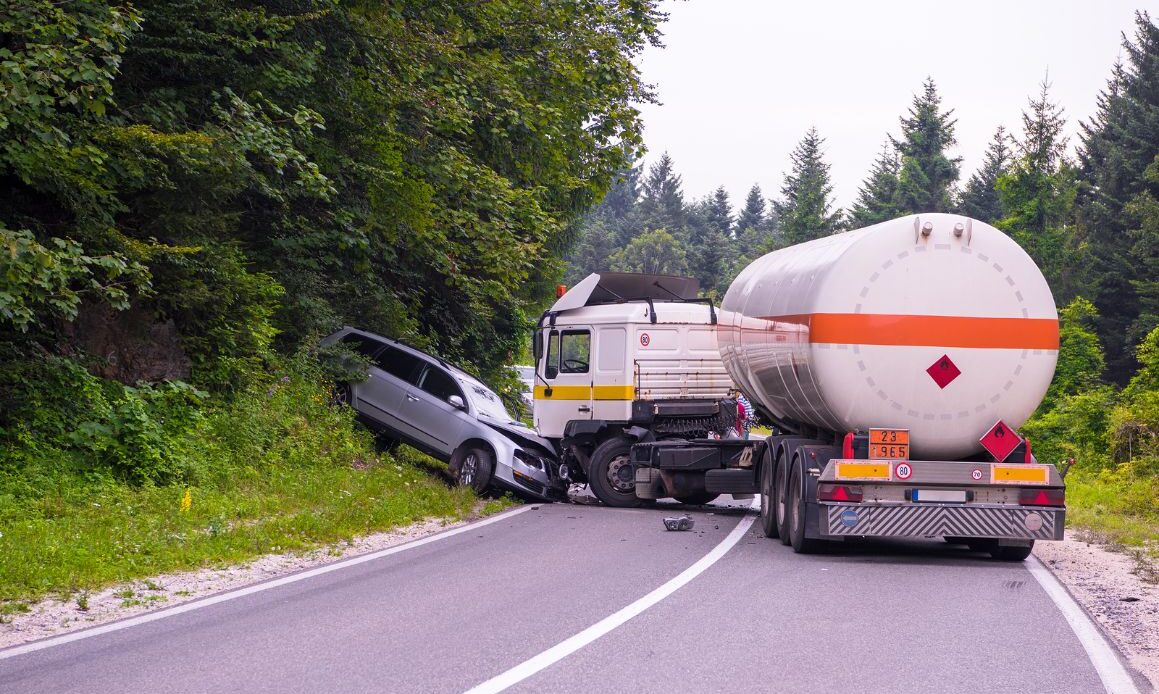Specific Trucking Law Information To Know
In the bustling world of commercial trucking, these vehicles’ sheer size and weight can create significant risks on the road. When accidents occur, determining liability can become a complex and nuanced issue. Commercial trucking is governed by a series of stringent federal and state regulations designed to ensure the safety of the roads. The Federal Motor Carrier Safety Administration (FMCSA) sets forth rules regarding vehicle maintenance, driver qualifications, hours of service, and more.
One of the fundamental aspects of liability stems from the truck driver’s qualifications. The FMCSA mandates that commercial drivers possess a valid Commercial Driver’s License (CDL) and undergo specific training. If a driver is unlicensed or inadequately trained, this could significantly impact liability for those involved.
Another critical factor concerns hours of service. These rules were made to prevent driver fatigue. They usually limit the hours a commercial driver can operate without rest. If an accident is attributed to a driver who has exceeded these limits, liability may fall squarely on the trucking company for allowing or requiring the driver to violate these regulations. Using logbooks and electronic tracking systems can establish whether the driver and the company adhered to these rules.
Finally, trucking companies are responsible for keeping their vehicles in good working condition and meeting safety standards. If an accident happens because of a mechanical failure and the company doesn’t maintain the truck properly, they can be held accountable. Regular inspections and maintenance records become essential evidence and a core part of the accident case.
If you have been involved in an accident with a commercial truck, seeking the help of an attorney is usually recommended. At Born & McCaffrey, we want to help victims of vehicular accidents get the compensation they deserve. Call us today to schedule a free consultation at 719-416-4246.
How Negligence Affects A Case
Liability in commercial trucking accidents often hinges on the concept of negligence. In legal terms, negligence occurs when a party fails to ensure a level of care that a reasonable person would demonstrate in these circumstances, resulting in harm to another party. Establishing negligence requires that several elements regarding the event are proven. Commercial drivers and trucking companies have a legal and ethical duty to operate their vehicles safely and responsibly. This includes following traffic laws and regulations, ensuring their vehicles are in safe working order, and maintaining a safe distance from other cars on the road. When a driver or company fails to meet this duty of care, it constitutes a breach.
A significant concern arises when companies push their drivers to work excessive hours, leading to fatigue. This kind of pressure can seriously impair a driver’s ability to operate their vehicle safely, increasing the risk of accidents.
Establishing liability requires that the breach of duty is shown to cause the accident directly. This often involves gathering evidence such as witness statements, traffic camera footage, or expert analyses that can shed light on what happened during the incident. Each piece of evidence helps build a clearer picture of the events leading up to the accident and determines who may be responsible.
It’s also important to note that Colorado follows a comparative negligence rule. This means that if the parties involved share some degree of fault in an accident, both may be found liable to some extent. For instance, if a driver was speeding but the other party failed to yield, both may be liable to some extent, impacting the compensation available to the injured party. The United States Department of Transportation website has more information about trucks and significant vehicular accidents.
The Role Of Insurance
Insurance plays a critical role in commercial trucking accidents, not just in providing coverage for damages but also in determining liability. Determining liability can be challenging, as previously mentioned. Commercial trucking companies must carry liability insurance that meets federal and state minimums, which can be substantial given the potential for significant damages in these cases. Two main types of insurance coverage may come into play:
- Liability Insurance: Covers damages to other vehicles and property and medical expenses for injuries caused by the truck driver. In an accident, this insurance could be the primary source of compensation for victims
- Cargo Insurance: This type covers the loss or damage to cargo being transported. If the cargo itself was damaged in the accident, claims may arise from the cargo owner against the trucking company
Additionally, having an experienced attorney can significantly affect this process. They can help you gather the necessary evidence, like accident reports and maintenance records, and assist in negotiating with insurance companies. An attorney knows how to push back against low offers and ensure that all responsible parties are held accountable.
Should I Seek Help?
Victims tackling their cases alone face an overwhelming battle. In between dealing with insurance claims and recovering from a potentially catastrophic accident, it can easily be too much for one person to handle. It’s not just about contacting the insurance company; it involves gathering evidence, filing paperwork, and sometimes negotiating with multiple parties. Insurance adjusters will evaluate the accident, which can lead to offers for settlement.
Seeking the help of a legal professional, such as a personal injury attorney, can not only better your chances of receiving a just amount of compensation but also give you peace of mind in unfortunate times. At Born & McCaffrey, PC, we prioritize our client’s time. We want to use our years of experience to help victims reach a legal outcome they are satisfied with. Call us today at 719-416-4246 to schedule a free consultation, or visit our home page.

